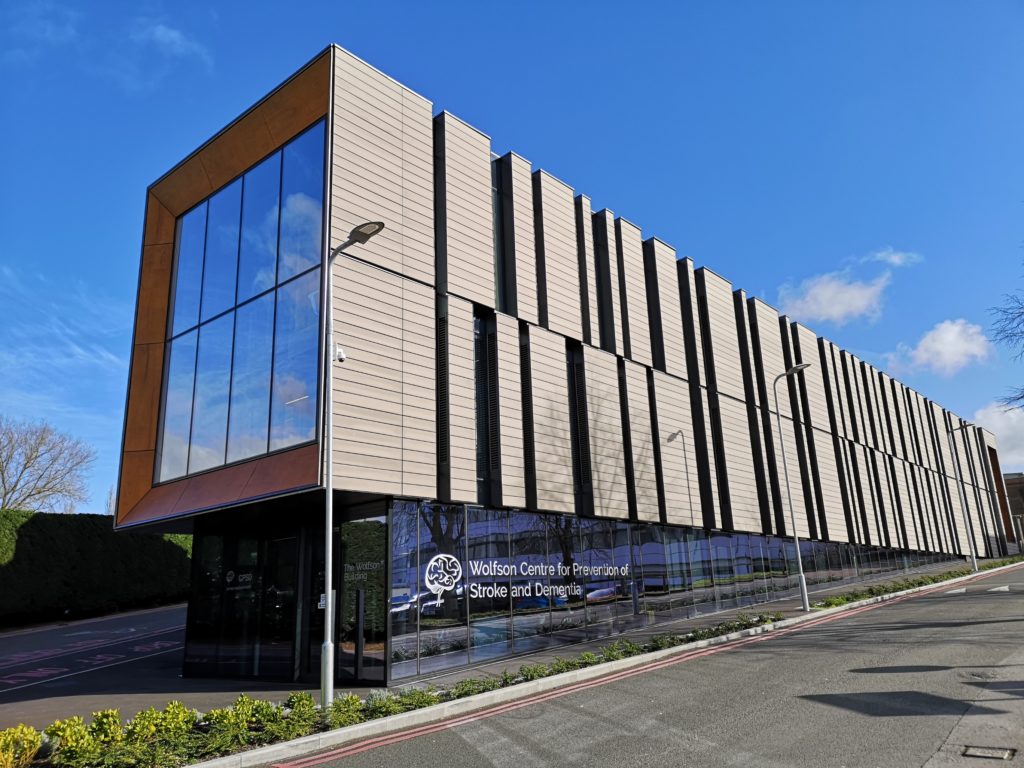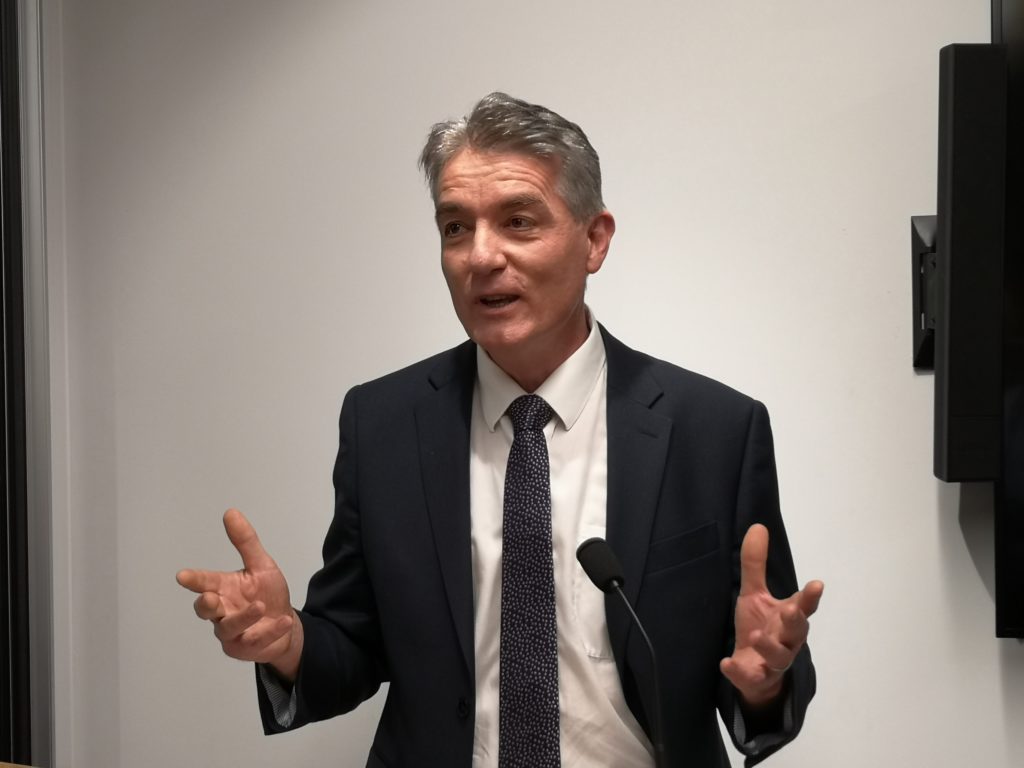Research into strokes and vascular dementia took a major step forward on Thursday (5th March) with the official opening of the Wolfson Centre for the Prevention of Stroke and Dementia (CPSD) in Oxford, based at the new Wolfson Building at the John Radcliffe Hospital.

The new centre is the only purpose-built clinical research centre looking specifically at stroke and dementia in the UK, and will house an estimated 25% of all the UK’s active stroke researchers. Funding for the CPSD, and the new Wolfson Building, was provided by the Wolfson Foundation and the Wellcome Trust.
The CPSD, part of the University of Oxford’s Nuffield Department of Clinical Neurosciences (NDCN), was officially opened by Emeritus Professor of Medical Neurology, Charles Warlow, the neurologist who first developed stroke research in the UK.
The ceremony was followed by a celebration reception for the new Wolfson Building, which also houses an annexe for the Wellcome Centre for Integrative Neuroimaging, also a part of the NDCN.
The CPSD is funded by the Wolfson Foundation, the Wellcome Trust and the University of Oxford. Many of the researchers based at the centre are funded by the NIHR Oxford Biomedical Research Centre.

The CPSD will allow substantial expansion of the previous Stroke Prevention Research Unit, already regarded as one of the most productive stroke research groups in the world.
The researchers use a broad range of techniques to increase our understanding of the causes of cerebrovascular disease and improve the prevention of stroke in routine clinical practice. These include large population-based cohort studies, state-of-the-art brain and blood vessel imaging and biobanks.
Gavin Screaton, Head of the University of Oxford’s Medical Sciences Division, said: “There are 1.2 million stroke survivors in the UK, and someone has a stroke here every five minutes. This new state-of-the-art centre represents a major step forward for stroke and vascular dementia research, not only in Oxford, but in the UK.
“Given the relatively large number of scientists and clinicians working here, the new expanded centre promises to keep Oxford at the forefront of research in this field, and ensure that we continue to deliver benefits for patients.”
Dr Bruno Holthof, Chief Executive Officer of Oxford University Hospitals NHS Foundation Trust, said “We are very privileged to see another leading medical research facility – and the UK’s first dedicated centre for stroke and dementia research – opening on the John Radcliffe site. This new centre brings together clinicians and researchers from the Trust and the University to improve diagnosis and treatment for patients.
Our clinical work has been informed by research from the Centre for the Prevention of Stroke and Dementia, and equally we aim to offer all our stroke patients the opportunity to take part in a research study, as this could be crucial for preventing strokes or improving treatment in future.”
The work of the CPSD has already led to major changes in clinical practice and guidelines, such as demonstrating the benefits of emergency treatment after a mini-stroke or TIA to prevent major stroke.

“Cerebrovascular disease is the leading cause of neurological disability in the UK and the most costly in terms of health and social care. Stroke and dementia share risk factors and often co-exist, each increasing the risk and severity of the other,” Professor Peter Rothwell, Founding Director of the CPSD, said.
“Stroke is as common as cancer or heart disease, but has received much less research funding in the past. More needs to be done to invest in stroke research, and the establishment of this centre is a positive step forward in this regard.
“Equally, vascular dementia makes up around 25 percent of all dementia in the UK, yet it receives much less funding than other kinds of dementia, such as Alzheimer’s. This centre – the only one of its kind in the country researching vascular dementia – also has an important role to play in tackling this condition,” Prof Rothwell said.
“The opening of this new centre is an opportunity to thank the patients who take part in our research. Almost 15,000 people have taken part in our Oxford Vascular Study looking at how common vascular disease is and how it affects people’s lives. Around 95 percent of patients we approach agree to take part in our research, for which we are enormously grateful.”
The Wolfson Building, which was designed by Oxford-based architects fjmt and built by contractor SDC, will also be home to researchers from the Wellcome Centre for Integrative Neuroimaging (WIN), who are investigating how the brain recovers after damage and how the brain processes pain.